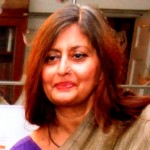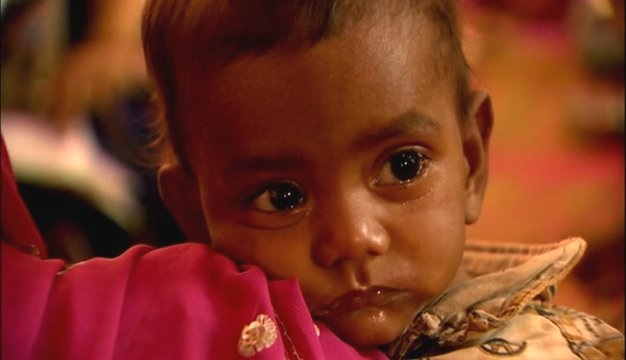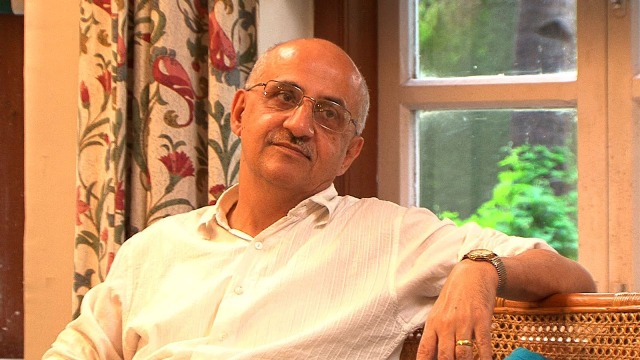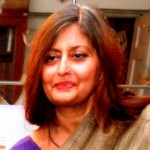Delhi hosted cultural events capturing the essence of bygone times, which only served to remind us of sharp, present-day realities.
 by Humra Quraishi
by Humra Quraishi
Delhi recently played host to a series of exhibitions on the life and works of Amir Khusrau. Then there was a three-day seminar on Dara Shukoh, the eldest son and heir apparent of Shah Jahan. There was also an exhibition on the art of Calligraphy. Sadly, I could make it to only one of these three events.
I attended the Amir Khusrau exhibition at the National Archives. Let me just say it was splendid. It captured the genius of Amir Khusrau, his poetry, his thoughts, and his philosophy. Credit ought to be given to the Aga Khan Trust for Culture and also to the curator, Shakeel Hossein, who, I’m told, came all the way from Boston to set up the exhibition.
I couldn’t attend the three-day meet on Dara Shukoh, organised by Anjuman Taraqqi Urdu (Hind), but going by the list of speakers – Gopal Krishna Gandhi, Professor Irfan Habib and several well-known historians and critics – it must have been a wonderful, full-fledged seminar. Dara Shukoh has always fascinated me a lot; so much so that I find my visits to the Kashmir Valley incomplete if I don’t go and visit the unique school of Sufism, Kas-I-Mah, which he had set up. Its ruins lie close to the Chashm-e-Shahi Springs in Srinagar. It is the first-of-its-kind in the whole of Asia and Central Asia, and the school, now in a dilapidated state, was built near the Chashm-e-Shahi springs at the suggestion of his spiritual teacher, Akhund Mullah Mohammad Shah, who came from Badakhshan, in Afghanistan.
The more I read on him, the more I begin to feel that if only he’d lived, he could have changed the entire complexion of this land. In fact, one of the rather fascinating books on Dara Shukoh is penned by Gopal Krishna Gandhi, Mahatma Gandhi’s grandson and former bureaucrat-turned-Governor and now full-time writer. Soon after his book, Dara Shukoh: A Play was released, I‘d asked him why he’d written a book on this bygone Mughal prince. He’d said, “It was his story which was, in fact, history. Where do you find failure trouncing success, defeat making victory counterfeit, as in the life of Shahjahan’s eldest-born?”
Meanwhile, the exhibition on the Art of Calligraphy by the Siasat Group (and set up at the Jamia Millia Islamia’s MF Hussain Art Gallery) drew large crowds. I feel that calligraphy ought to be revived in a big way, as it is one of those art forms that hasn’t received its due recognition in the country.
But all these events that helped me delve into our rich past has only forced me to ponder over our present and the future – what can we take away from the present?
Nothing. For today, we are busy chasing even those militants who are begging forgiveness and want to give up a life of violence for a second chance. Today, we are calling every bearded person a terrorist.
This week, on World Water Day, UNICEF released these grim findings: ‘Globally, an estimated 2,000 children under the age of five die every day from diarrhoeal diseases and of these, some 1,800 deaths are linked to water, sanitation and hygiene. Almost 90 per cent of child deaths from diarrhoeal diseases are directly linked to contaminated water, lack of sanitation, or inadequate hygiene. Despite a burgeoning global population, these deaths have come down significantly over the last decade, from 1.2 million per year in 2000 to about 760,000 a year in 2011.
UNICEF child mortality data show that about half of under-five deaths occur in only five countries: India, Nigeria, Democratic Republic of the Congo (DRC), Pakistan and China. Two countries – India (24 per cent) and Nigeria (11 per cent) – together account for more than a third of all under-five deaths. These same countries also have significant populations without improved water and sanitation.’
The report also states that, ‘The figures for sanitation are even bleaker. Those without improved sanitation in these countries are: India 814 million; China 477 million; Nigeria 109 million; Pakistan 91 million; and DRC 50 million. Improvements in water and sanitation would greatly contribute to a reduction in child mortality in these counties.’
This is the present we are grappling with.
Humra Quraishi is a senior political journalist based in Gurgaon. She is author of Kashmir: The Untold Story and co-author of Simply Khushwant.
(Picture courtesy bbc.co.uk)


